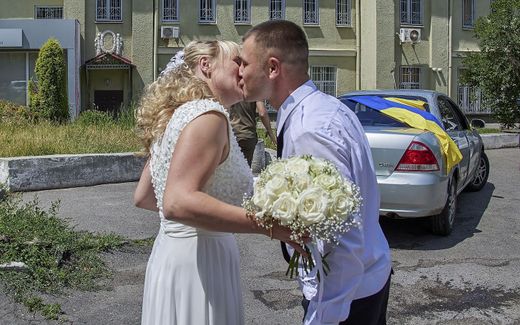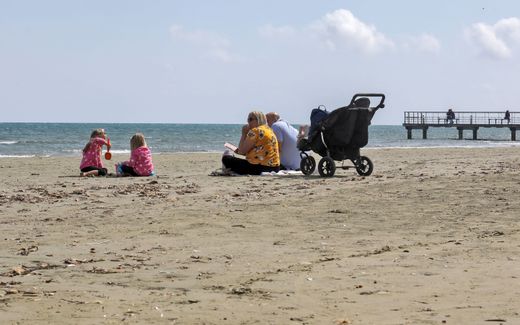Why do children of divorced parents not cry out?
02-11-2022
Opinion
Editorial in Dagen, Norway

A little girl watches her parents fight. Photo ANP, Roos Koole
Opinion
Many years ago, the Norwegian psychologist Sissel Gran called for a divorce revolt. She expected an outcry from teenagers and young adults who live with the consequences of their parents' divorce.
Yet the insurrection is nowhere to be seen. It amazes Gran. "It is still quiet. Amazingly quiet", Gran says to Dagen.
The lack of rebellion should perhaps surprise more people because the consequences for the children of divorced parents can be significant and long-lasting. And this group is extensive. Statistics show that around 40 per cent of Norwegian married couples divorce. Among cohabitants, the figures are even larger.
Elephant
At the same time, it should be noted that some children may find it a relief when father and mother separate, for example, when there have been many fights in the home.
However, the burden of divorce on children is the elephant in the room. It is a big topic which affects individuals and society. Still, there is surprisingly little conversation about it.

Behind the divorce statistics, there are grieving children because the family, as they knew it, broke up. We find children who become a plaything between parents in conflict and children who have to move and are torn away from family and friends.
Stressful
A University of Western Norway survey in 2019 concluded that parental separation and having to live in two homes is stressful for most children. It can even affect their health as adults.
Furthermore, one can ask how significant the role of a divorce is when children struggle at school, when young people struggle with their mental health or when young adults refuse to commit. There are more singles today than ever. Or what the financial consequences are when more children grow up in single-parent households. And don't forget the costs that society has to pay for hours of sick leave following conflict-filled breaches.
Grandparents
The high number of divorces and break-ups should be defined much more as a social problem. Appropriate measures should be introduced to deal with the situation in all its seriousness.
This might not happen because the topic is painful and complicated. But also, because many of the generations of parents and grandparents are, in a certain sense, incompetent. Many are divorced themselves. And telling yourself that things are going well is a form of self-protection. Divorces seem to have become so common that it is no big deal nowadays anymore.
Surprising silence
Another explanation for the surprising silence on the topic could be that the children of divorced parents refuse to protest. They are afraid of adding another burden to their parents by talking about the consequences their break-up had for them. Often, they feel a great responsibility to ensure that their parents are doing well.
"I have felt responsible for their happiness", Ida Christensen writes in her new book "Skilsmissebarn" (Divorce children). She does not believe that the crises linked to divorces have necessarily been downplayed deliberately. "But it is uncomfortable for everyone to talk about this", she says to Dagen.
Loyalty
In the book, however, she talks honestly about the consequences of divorce. Among other things, she writes about the feeling of emotional responsibility for her parents and her own doubts related to marriage and children. She also talks about loyalty conflicts, homelessness and a persistent uncertainty about whether she is a bother. "The divorce does not go away; it never ends completely", she concludes.
Marianne Hordnes (40) confirms that the consequences of a divorce are significant. She was a teenager when her parents separated and experienced it as a shock. "The consequences of a divorce never disappear", she says Dagen 25 years later.
Alarm
Sissel Gran recognises the experiences. She is not only a psychologist but also a cohabitation therapist and author. She tells Dagen that it can take time for many young people to come to terms with the fact that their family broke up. Many people take their divorce with them for the rest of their lives.
The fact that divorces are common is no excuse for ignoring them. That it is so common, that numbers are sky-high, and that so many children are affected should, on the contrary, trigger an alarm. It should make congregations, organisations, and politicians act for the sake of families, children and public health. As a society, we must do what we can to prevent break-ups, support struggling families and keep an eye on children who are struggling after their parents' divorce.
This article was translated by CNE.news and published by Dagen on October 25th, 2022.
Related Articles










